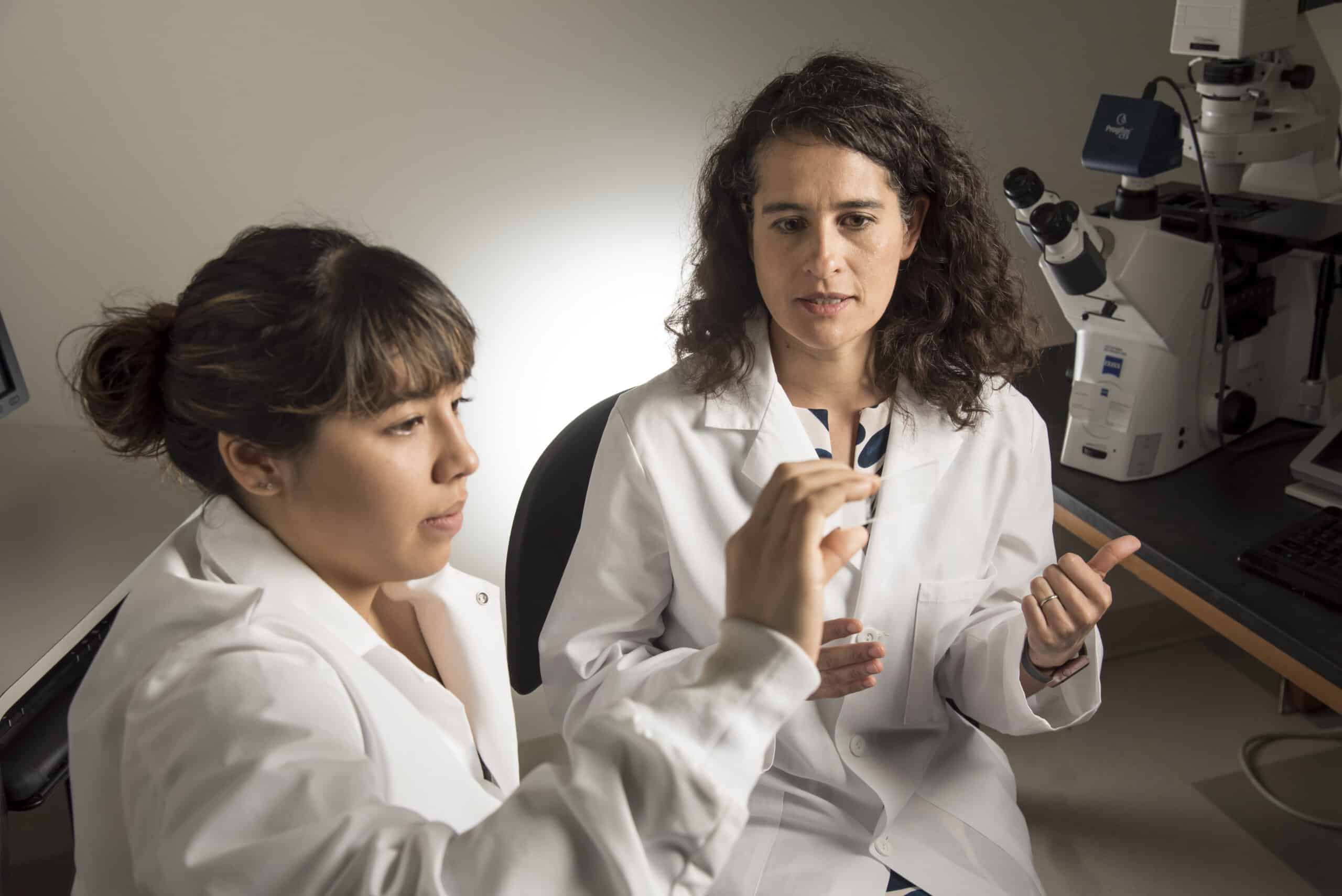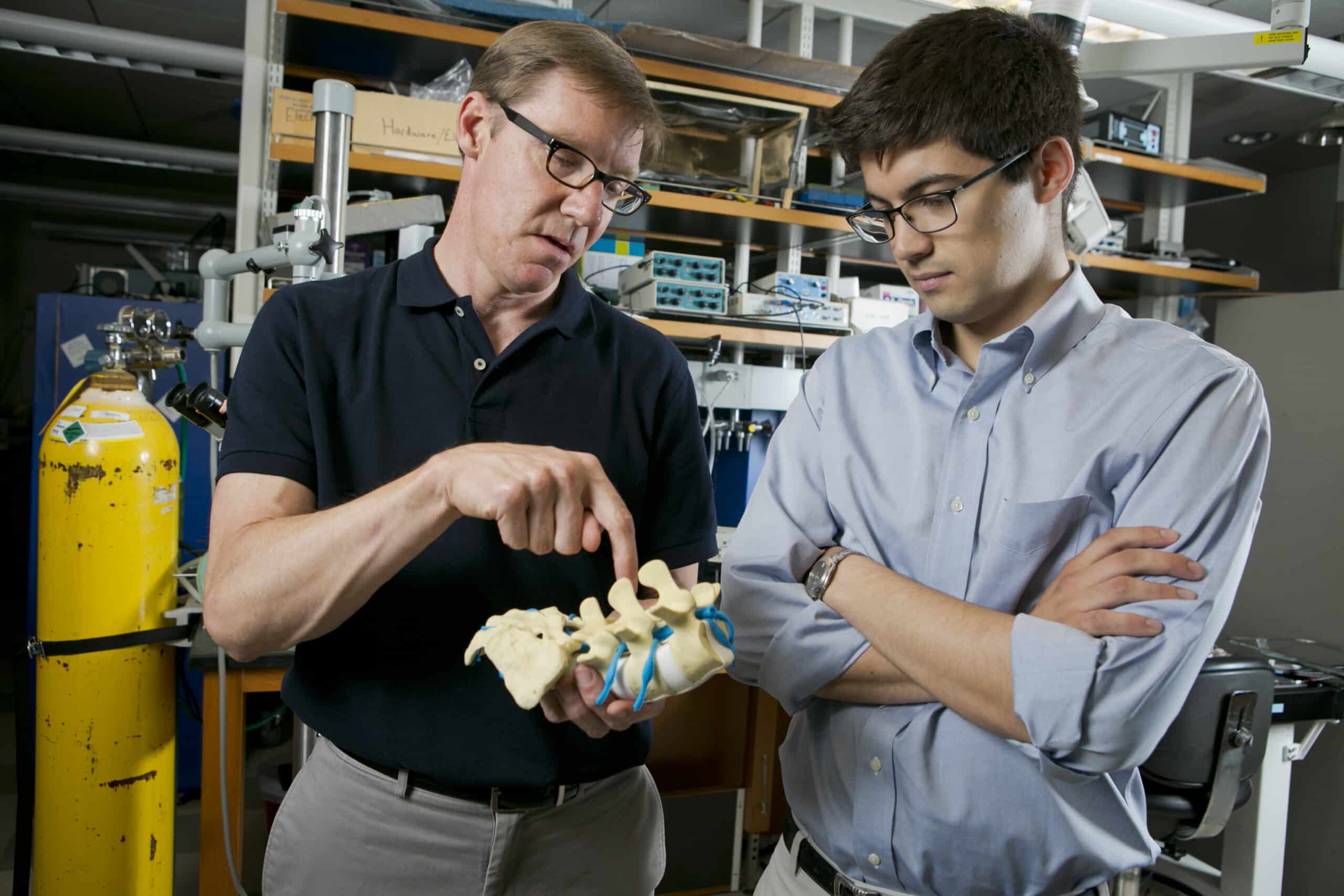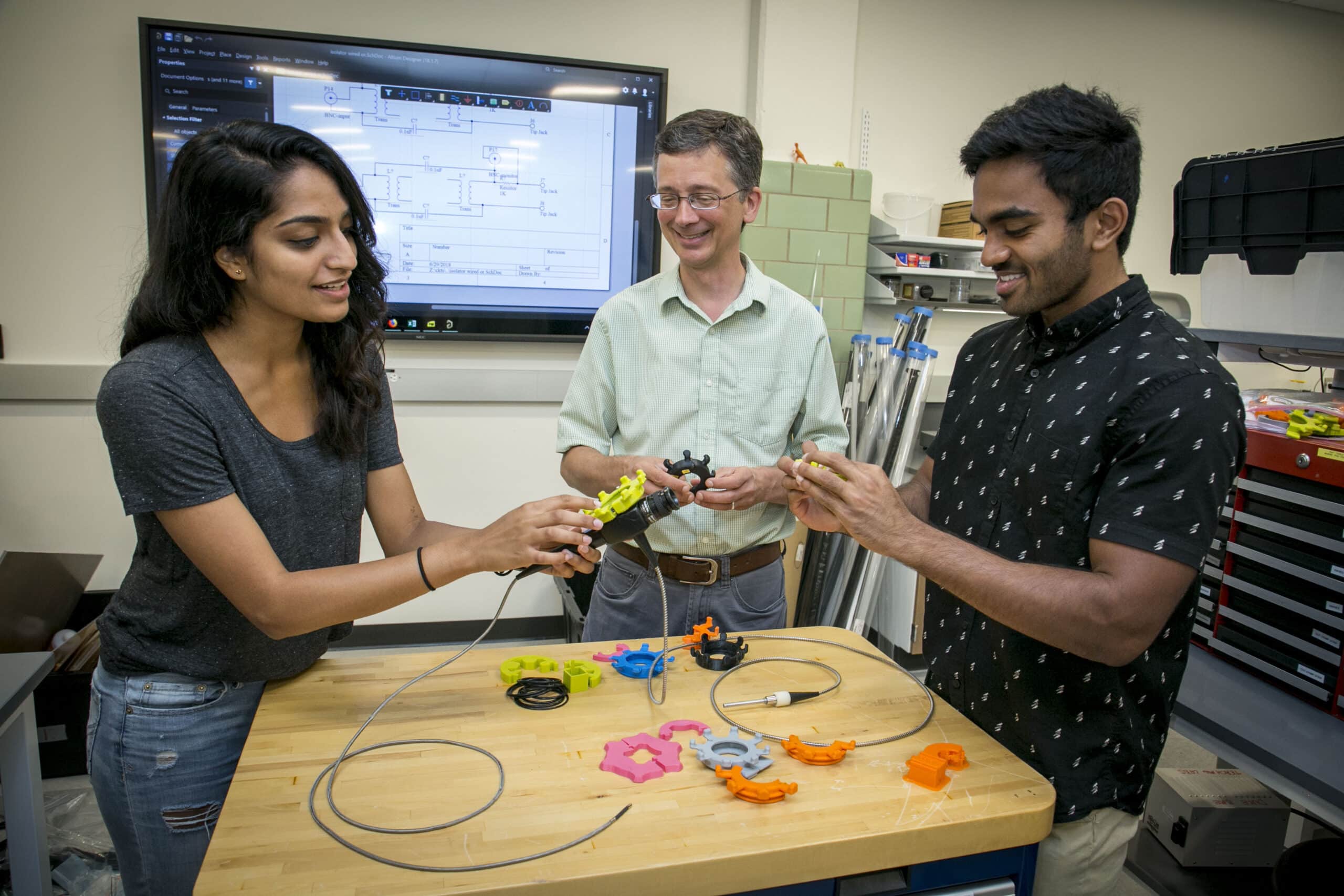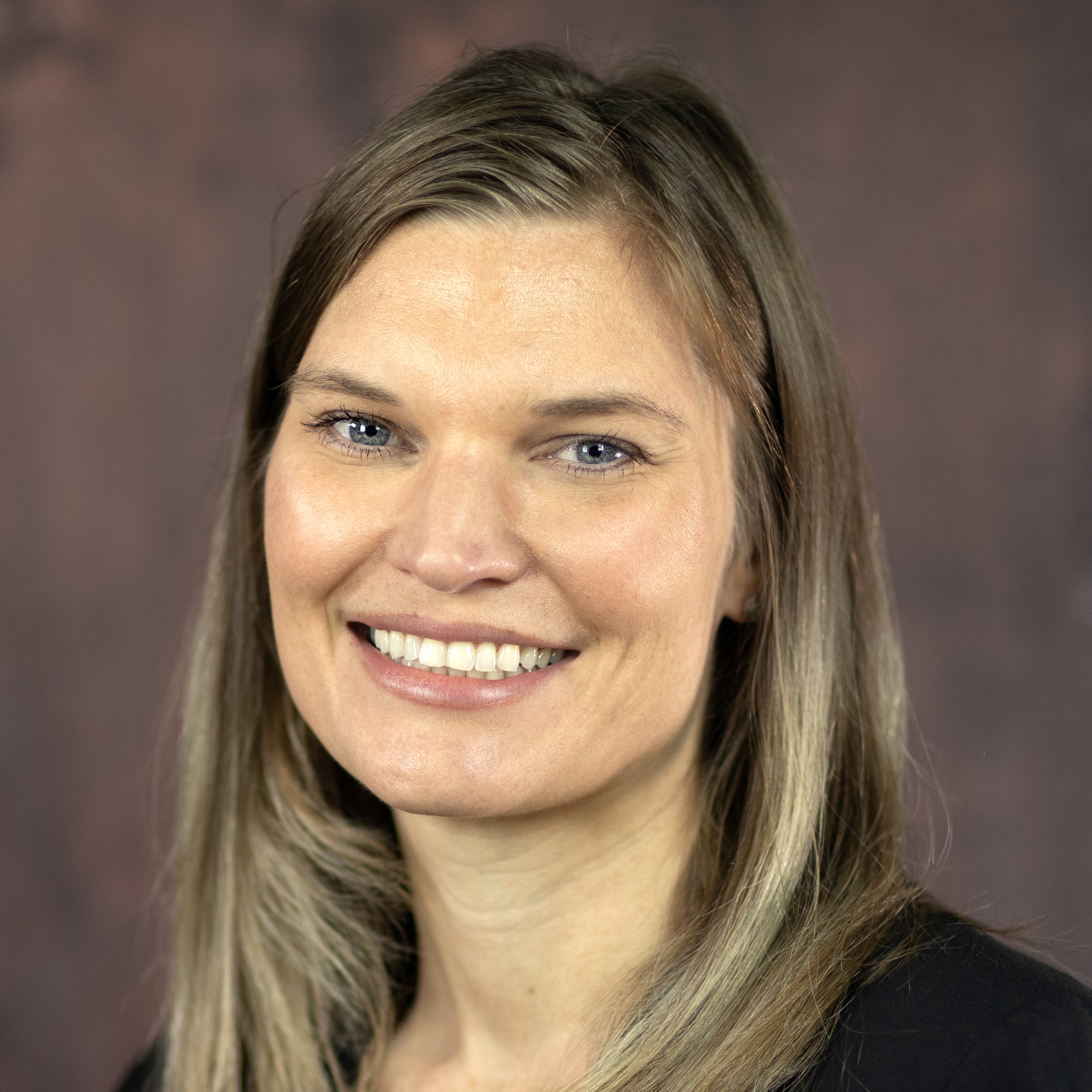PhD Program
Take on the Big Challenges
Earning a PhD takes courage. There will be obstacles, uncertainty and ambiguity. But it’s the vision of better patient care that sustains you, drives you. That’s what drives us, too.

Excellent Outcomes
Nearly 20 percent of recent graduates launched into academic careers. More than 60 percent began jobs with leading health technology organizations.
Comprehensive Mentorship & Support
Mentoring, really, even before Day One. During the Duke BME admission process we’ll begin an immersive discussion about your interests. Based on those discussions, once accepted you’ll be admitted directly to a lab. Your advising team will including your program director, a team of faculty members and senior PhD students—plus dedicated resources through Duke’s Graduate School.
Additional High-Value Resources
- Conference and travel support
- Grant supported traineeship programs
- Graduate certificate programs in tissue engineering, nanoscience and photonics


Entrepreneurship: Duke Design Health
Discover. Design. Deploy.
When you join a Duke Design Health team you identify needs that impact human health, and then create effective, equitable solutions.
-
- 30 Units of Coursework
- Life Science course—3 units
- Advanced Mathematics course—3 units
- Additional courses—24 units
- Preliminary Exam
- 2 Seminars
- 2 Semesters of Teaching Assistantship (TA)
- Responsible Conduct of Research (RCR)
- Orientation
- 4 RCR forums
- Thesis and Defense
- 30 Units of Coursework
-
Milestone Year of Study Preliminary Exam Years 2–3 Teaching Assistantship Assignments Years 2-5 Fourth-Year Progress Report Meeting Year 4 Thesis Defense Years 5-6 -
The minimum required coursework is 30 units.
The program of coursework, including the applicability of any transfer credit, is determined by the student, and their advisor and committee.
Each committee meeting should include an update on progress towards coursework requirements. The student’s committee retains the power to approve the coursework or request that the student take additional courses.
The Advanced Mathematics (3 units required) and Life Science (3 units required) courses, and up to one (1) independent study course may be used toward the 30-unit requirement. See a list of potential Life Science and Advanced Math courses. Students are not limited to the courses listed.
Important Notes
- Ungraded seminars do not count toward the 30-unit requirement. Students are encouraged to discuss class selection with their advisor upon matriculation and frequently throughout their course of study
- Students seeking a master’s degree en route to a PhD must satisfy the degree requirements for the master’s degree. These are not necessarily aligned with the PhD coursework requirements, and so special consideration should be taken
-
Two (2) semesters of BME Seminar are required:
- New matriculants take BME 702’s (fall only)
- Second-year students take BME 701’s (spring only)
-
Two (2) semesters are required.
Duke BME PhD students typically fulfill their teaching assistant (TA) assignments in years 2 to 5.
Students must:
- Complete a TA training session
- And sign up for a Teaching Assistantship Seminar during the semesters in which they TA
-
RCR training at Duke challenges students to engage in ethical decision-making through active learning—by using realistic scenarios and current issues.
One (1) orientation session and four (4) forums are required.
PhD Contacts

Kathy Nightingale, Ph.D.
Director of Graduate Studies, Theo Pilkington Distinguished Professor of BME


